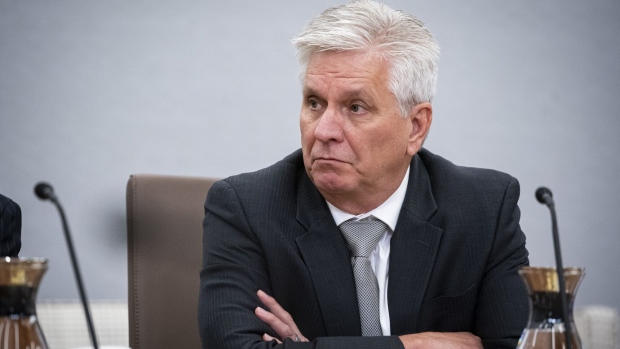May 24, 2023
Fed’s Waller Says Choice to Hike or Skip in June Hinges on Data
, Bloomberg News

(Bloomberg) -- Federal Reserve Governor Christopher Waller said whether officials hike interest rates again next month or skip a move will hinge on key data over coming weeks, but it’s premature to declare the tightening cycle is over.
“I do not support stopping rate hikes unless we get clear evidence that inflation is moving down towards our 2% objective,” Waller said Wednesday in prepared remarks at an event hosted by the University of California Santa Barbara. “But whether we should hike or skip at the June meeting will depend on how the data come in over the next three weeks.”
Officials have raised rates by 5 percentage points in the past 14 months to curb inflation running more than double their 2% target. With their benchmark rate now in a 5% to 5.25% target range following a quarter-point increase earlier this month, Fed Chair Jerome Powell said Friday that policymakers could afford to watch the data and the evolving outlook.
Still, some other Fed officials including St. Louis Fed President James Bullard and his Minneapolis colleague Neel Kashkari have said the central bank may need to hike further to bring down inflation.
Investors moved up bets on a rate hike next month to about 30% before Waller spoke, according to pricing in futures contracts.
‘Maintain Flexibility’
“We still have some major data releases coming up in the next three weeks and I’ll also be learning more about evolving credit conditions, both factors which will inform me on the best course of action,” Waller said. “Between now and then, we need to maintain flexibility on the best decision to take in June.”
Waller said he was disappointed in the recent lack of progress in inflation and will pay special attention to data including a consumer price report that will be published on June 13, the first day of the Fed’s two-day meeting next month.
Goods pricing aren’t falling as they were prior to Covid-19, a rebound in the housing market is raising questions about rents and a tight labor market and rising wages could influence services prices, he said.
“We also are at a period of higher-than-usual uncertainty about how credit conditions are evolving in response to the recent bank failures and stress among some other mid-size banks,” Waller said.
“If lending does slow, this can obviate the need for at least some monetary policy tightening,” he added. “If not considered appropriately, the Fed could tighten too much and needlessly raise the risk of a recession.”
©2023 Bloomberg L.P.






